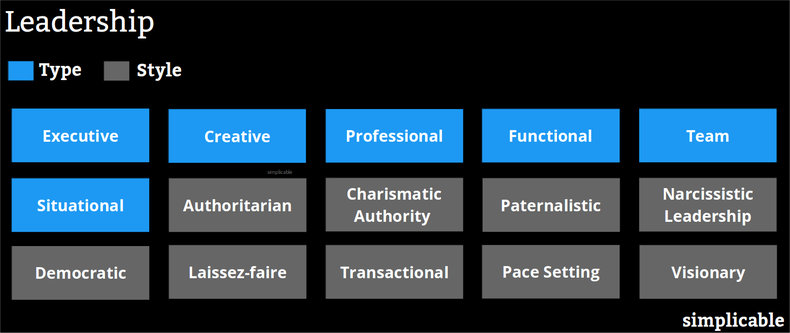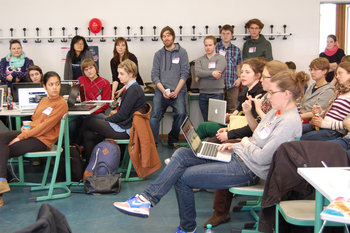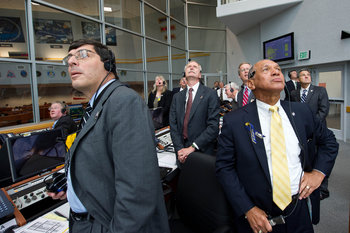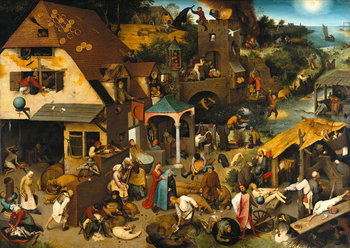

Types
In a modern economy, leadership takes on different dimensions as individuals may lead strategy, creativity, ideas or work itself.Executive
Leadership of strategy, governance and relationships with stakeholders such as investors, customers and regulators.Creative
Direction of creative processes such as design or communication.Professional
Individuals who lead within their profession. For example, a software developer who leads the architectural vision for an organization.Functional
Leading an organizational capability. For example, an individual who leads cross-organizational efforts to improve customer relationships.Team
Leadership of a team including considerations such as strategy, productivity, team culture and mandate.Situational
Leaders who arise to deal with current realities. For example, a quiet student who suddenly leads the class in the exploration of a topic that interests them.Styles
Styles of leadership are methods for getting people moving in the same direction. They differ by organization, team and individual leader. In many cases, an organization or individual will adopt different styles of leadership based on the context.Authoritarian
A command and control style of leadership based on formal authority, systems, rules, regulations and monitoring.Charismatic Authority
An individual who leads based on their social skills. Such individuals may have no formal authority or may influence beyond their authority.Paternalistic
Leadership that seeks to develop team members to their full potential. This may involve coaching, support and challenging assignments. A paternalistic learner is typically valuable to an organization. By developing people, they gain a loyal and capable professional network.Narcissistic Leadership
A leader who is solely concerned with their own extrinsic rewards. For example, they are willing to destroy value if it is good for them personally. Such leaders are in a constant state of conflict and pride themselves as being "tough."Democratic
Leaders who see their role as a process of facilitation and orchestration of social processes.Laissez-faire
Leaders who grant freedoms to the individual to create value as they see fit. Such leaders may see their role as providing high level inspiration and direction.Transactional
Leadership based on a system of setting objectives and evaluating results. This system includes rewards and penalties and is meant to be conducted in a fair, open and predictable way.Pace Setting
A leader who is way in front of a team in terms of productivity and/or the quality of their work. They serve as an example and resource for a team that boosts everyone's productivity.Visionary
A leader who is way in front of a team in terms of vision and creativity. Their creative influence boosts the value of the team's output. Also known as transformational leadership.| Overview: Types Of Leadership | ||
Type | ||
Definition | The practice of uniting the efforts of a group towards a common purpose. | |
Related Concepts | ||
































